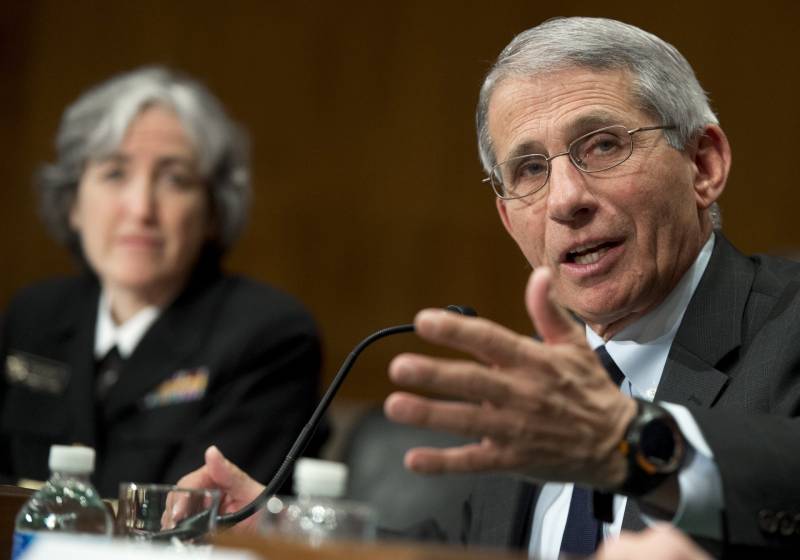No major pharmaceutical company has come forward to say it would manufacture a novel coronavirus vaccine, currently being developed by the National Institutes of Health, a top U.S. official acknowledged Tuesday, a reality that he called “very difficult and very frustrating.”
The comments by Dr. Anthony Fauci, director of the National Institute of Allergy and Infectious Diseases, highlight how challenging it could be to translate the NIH’s work, being undertaken in partnership with the biotech company Moderna Therapeutics, into a vaccine that could be marketed. Fauci described the circumstances as challenging. “Companies that have the skill to be able to do it are not going to just sit around and have a warm facility, ready to go for when you need it,” Fauci said, speaking on a panel Tuesday hosted by the Aspen Institute and moderated by STAT’s Helen Branswell.
Fauci said it would be at least a year before a coronavirus vaccine would be available. However, that timeline assumes a large pharmaceutical manufacturer does step up to help make the product.
The vaccine being developed by the NIH and Moderna uses mRNA technology and is being funded by the Oslo, Norway-based Coalition for Epidemic Preparedness Innovations. CEPI is funding three other efforts to develop a vaccine for the novel coronavirus. None of those partners, however, have the kind of commercial facilities that major pharmaceutical makers have and that would be capable of making the product in bulk.
Johnson & Johnson has announced it is interested in developing its own coronavirus vaccine. On Tuesday, the company’s vaccine division, Janssen, said it would partner with the Biomedical Advanced Research and Development Authority, an agency of the Department of Health and Human Services to develop that vaccine.

